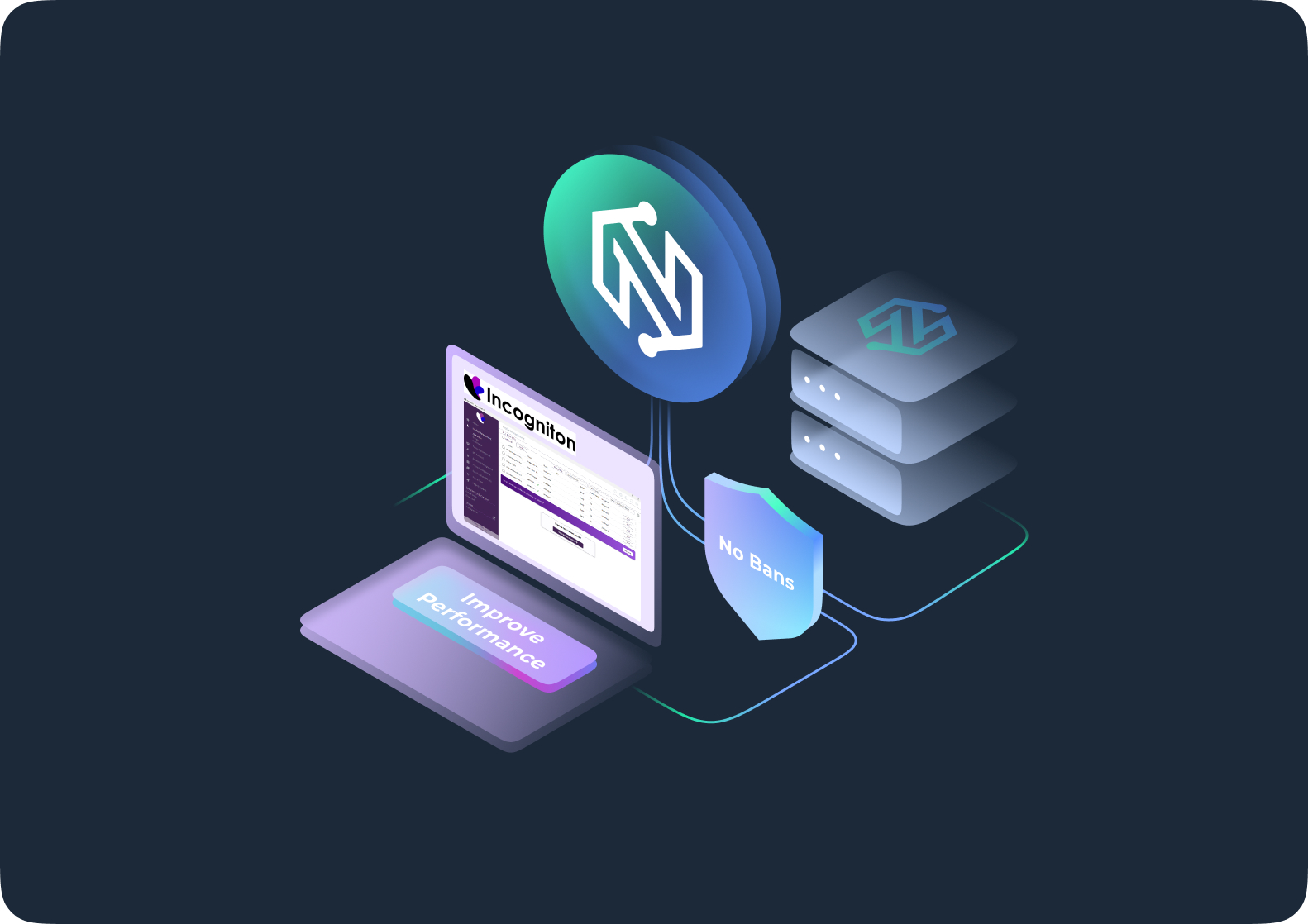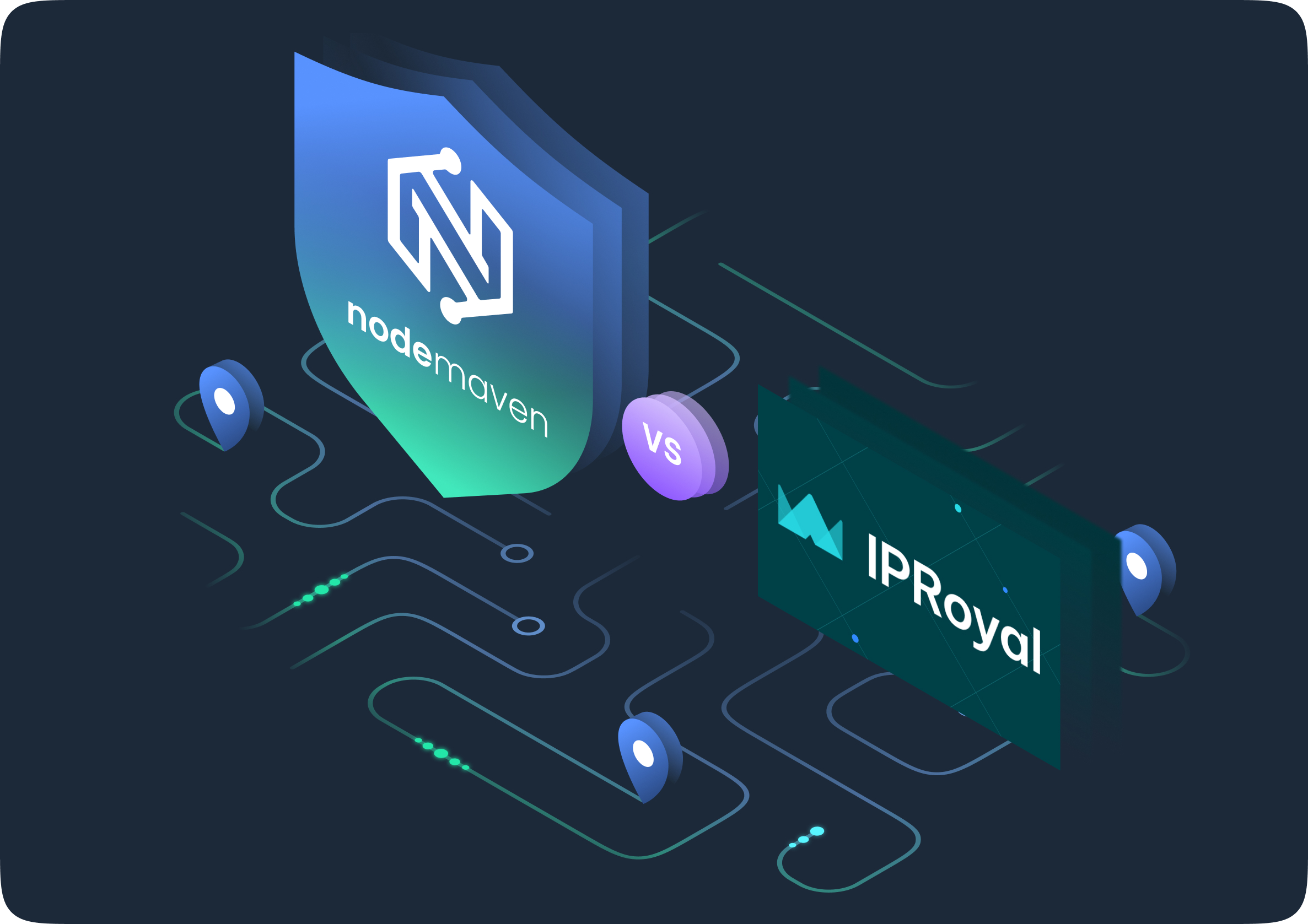Have you heard of Rotating IPs?
The service market has been growing so fast recently, that by recent calculations it is believed to reach $16,337.5 million by 2030.
Whether you’re a business collecting market data, a social media manager handling multiple accounts, or an individual bypassing geo-restrictions, the ability to dynamically switch IP addresses has revolutionized online anonymity and efficiency.
With cyber threats and detection systems becoming increasingly sophisticated, it is becoming harder and harder to rely on static residential proxies. Enter rotating IPs – your gateway to secure, anonymous, and secure online activity.
In this article, we’ll dive deep into the mechanics of rotating IP addresses, their benefits, use cases, and how they stack up against static IPs.
Understanding the Basics of IP Address Rotation
Rotating IP addresses are the foundation of secure and anonymous internet activity. To fully grasp their importance, it’s essential to understand what an IP address is, how rotation works, and why it’s necessary in certain use cases.
What Is an IP Address?
An IP (Internet Protocol) address is a unique numerical label assigned to each device connected to a network. Think of it as your device’s “digital address,” enabling communication between your device and the internet.
Without an IP address, websites wouldn’t know where to send the requested information, whether it’s loading a web page or streaming a video. And who needs that, right?
IP addresses come in two main forms:
- Static IPs: Remain constant and are typically assigned to servers or businesses.
- Rotating IPs: Change periodically and are commonly assigned to home internet users by ISPs.
How Does a Rotating IP Address Work?
Rotating IPs take dynamic addressing to the next level. Instead of relying on an ISP’s occasional changes, rotating proxies manage IP rotation systematically.
Proxy providers maintain vast pools of IP addresses – residential, mobile, or datacenter – that they assign to users for brief intervals.
When using a rotating proxy, each request to a website can come from a different IP address, making it appear as though the requests are from different users in various locations.
This behavior not only masks your identity but also prevents detection by anti-bot systems. The question you probably are asking yourself now is:
Why Rotate Proxies?
Rotation is critical for tasks that require anonymity or large-scale automation. By rotating residential proxies:
- You avoid triggering security systems that detect repetitive behavior from the same IP. With services like Multilogin, users can efficiently rotate IP addresses to maintain a low profile and avoid detection.
- You gain access to geo-restricted content by simulating users in different locations.
- You get uninterrupted workflows, especially for tasks like web scraping or ad verification, which often involve multiple requests.
Benefits of Using a Rotating IP Address Proxy
The advantages of rotating IP proxies extend beyond simple anonymity. They are essential tools for improving operational efficiency, bypassing restrictions, and achieving online success in various fields.
Enhanced Online Privacy and Anonymity
Rotating proxies continually change your IP address, making it difficult for websites, advertisers, or cybercriminals to track your online behavior. For individuals and businesses alike, this heightened anonymity provides peace of mind when handling sensitive data or navigating privacy-sensitive environments.
Avoiding Geo-Restrictions and Bans
Rotating IPs allow users to access content restricted to specific regions by simulating traffic from the desired location.
For instance, if you’re managing accounts in different countries, rotating proxies make sure you can appear as though you’re logging in locally, reducing the risk of bans due to suspicious activity.
Ideal for Web Scraping and Data Collection
Web scraping often involves sending hundreds or even thousands of requests to a single website, which can quickly flag and block static IPs.
Rotating proxies distribute these requests across multiple IPs, evading detection and keeping uninterrupted data collection. Businesses use this capability for price monitoring, competitor analysis, and SEO tracking.
Methods for IP Address Rotation
How you implement IP address rotation can significantly impact your success. This section explores the common methods and their suitability for various tasks.
- Rotating residential proxies: These proxies use IPs from real devices, offering high anonymity and making them harder to detect. They’re ideal for sensitive tasks like ad verification and social media management.
- Residential proxies: Unlike rotating residential proxies, these provide static IPs tied to real residential devices. They are perfect for tasks requiring consistent identity, such as account management, e-commerce monitoring, or accessing geo-restricted content.
- Mobile proxies: Using IPs assigned to mobile devices, these proxies are perfect for platforms with stringent detection systems. Their dynamic nature gives excellent success rates for activities like app testing or mobile ad verification.
- Datacenter proxies: While less anonymous than residential proxies, they provide faster speeds and are suitable for tasks requiring high throughput, such as large-scale data scraping.
- Session-based rotation: Some proxy services offer sticky sessions, allowing users to retain the same IP for a set period before it rotates. This is useful for tasks requiring consistency, such as managing accounts or making purchases.
Key Use Cases for Rotating IP Addresses
Rotating IPs are versatile tools with applications across industries. Here are some of the most common and impactful use cases.
- Social media management:
Marketers managing multiple accounts can avoid bans and maintain unique identities by using rotating proxies. This makes sure each account appears to have a distinct user behind it. - Ad verification:
Advertisers use rotating IPs to verify how their ads appear in different regions. This helps to make sure accurate targeting and prevents ad fraud. - SEO and market research:
Rotating proxies allow SEO professionals to scrape search engine result pages (SERPs) across various locations without triggering Google’s anti-bot measures. - E-commerce and price aggregation:
E-commerce businesses and aggregators rely on rotating proxies to monitor competitor prices and product availability globally. - Gaming and streaming:
Gamers and streamers use rotating IPs to bypass geo-restrictions, reduce latency, and maintain smooth connections.
Rotating IP Address Proxy vs. Static IPs: Which One to Choose?
Both rotating and static proxies have their strengths, but your choice should depend on the specific needs of your tasks.
Why Static Residential Proxies?
Static proxies are ideal for activities requiring a consistent identity, such as managing financial accounts or running long-term ad campaigns.
Their reliability keeps uninterrupted operations without raising red flags due to frequent IP changes.
When Rotating IP Address Proxies Outperform
For tasks involving high-volume requests, anonymity, and global scalability, rotating proxies shine.
They are perfect for web scraping, social media automation, and other operations where avoiding detection is critical.
Maximize Proxy Success with NodeMaven’s Rotating IP Address Solutions
NodeMaven’s rotating proxies are made to meet the demands of modern businesses:
- Massive global proxy pool: Access a network of over 30 million high-quality residential and mobile proxies, granting unparalleled anonymity and coverage in every corner of the globe.
- Advanced rotation technology: Enjoy optimized IP rotation with customizable sticky sessions to match your specific use case, whether it’s web scraping, data collection, or managing multiple accounts.
- Geo-targeting precision: Target specific countries, cities, or ISPs with pinpoint accuracy to replicate real-world traffic distributions for your campaigns.
- Optimized for diverse use cases: Perfect for marketers, researchers, and e-commerce professionals, NodeMaven’s rotating IP solutions give you high success rates across industries.
- 24/7 expert support: Count on our dedicated support team to help you troubleshoot and optimize your proxy setup at any time.
Ready to take your online operations to the next level? Start with NodeMaven’s rotating IP solutions today!


